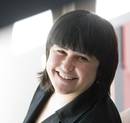Placebo effect
In Latin, the word placebo means “I will love you” and you can hardly explain better how placebo has been better interpreted in medicine. Nor is the name doctors made of false remedies more significant.
Today, placebo is a treatment that does not contain effective substances and yet produces an improvement in the patient. And unlike the eighteenth century, doctors and scientists look at him with credibility. In fact, some clinical sessions and experiments have shown, on the one hand, that the placebo effect is real and, on the other hand, that it is not a mere psychological effect, but that it has measurable physiological effects.
According to the data collected, the placebo effect has its essence in the brain, but the truth is that we do not know much about this effect. It is not clear what the mechanism of action is, nor the conditions sensitive to the placebo effect, since not all diseases and pains are much less sensitive to placebo. There are interesting hypotheses, but placebo research has not yet given theory.
The placebo effect lacks research and investors that deepen knowledge, in addition to knowledge. In fact, with credibility yes, but not passionately looking at placebo research. For the pharmaceutical industry the placebo is the control to try drugs and point. They have no interest in adapting clinical sessions, or in establishing ways to analyze the placebo effect with greater depth and reliability; they have nothing to gain, investing money and efforts there. On the other hand, the placebo effect is not considered today a valid therapeutic tool. In addition, the use of placebo generates ethical problems in both research and therapy.
However, the placebo effect can be much more than something of mere academic interest. Knowing how it can affect people for something that does not have an effective substance can teach them a lot about the human being, and this knowledge, well managed, can be a good ally in a health system that prioritizes people.






